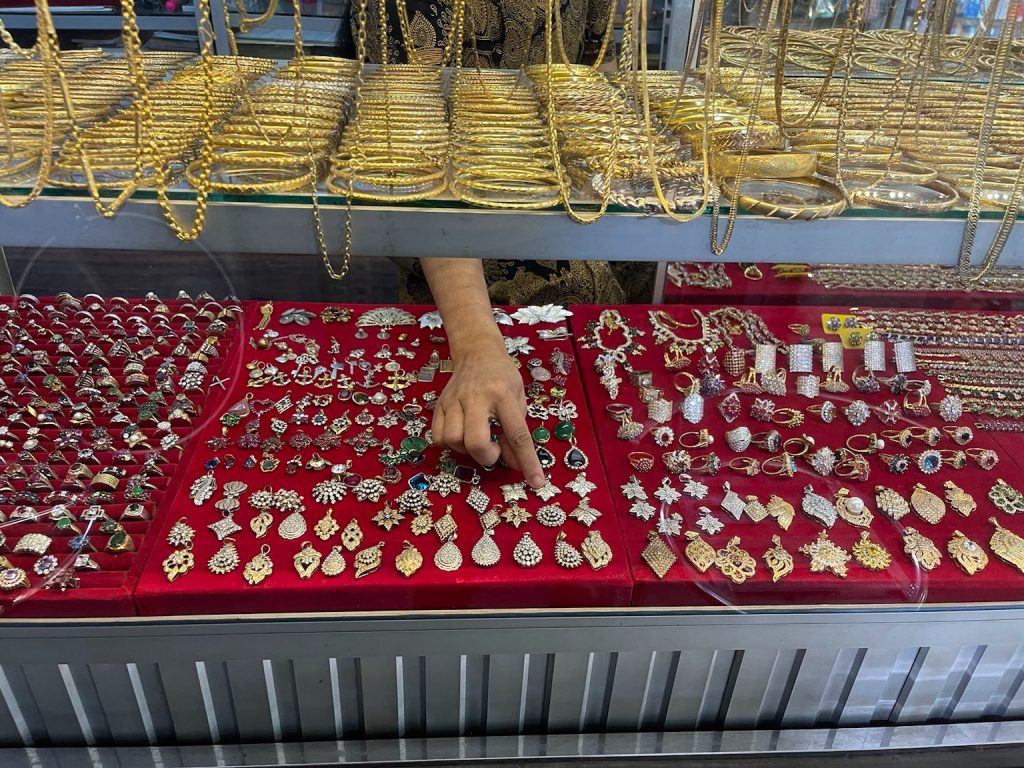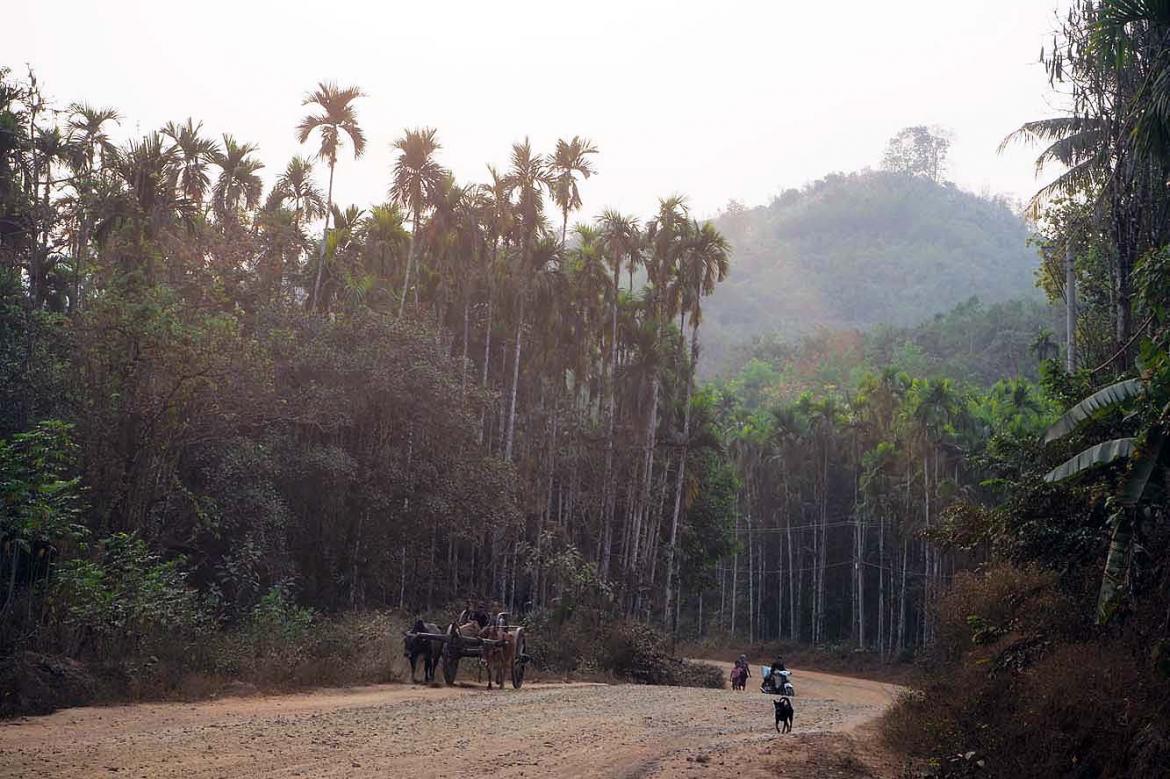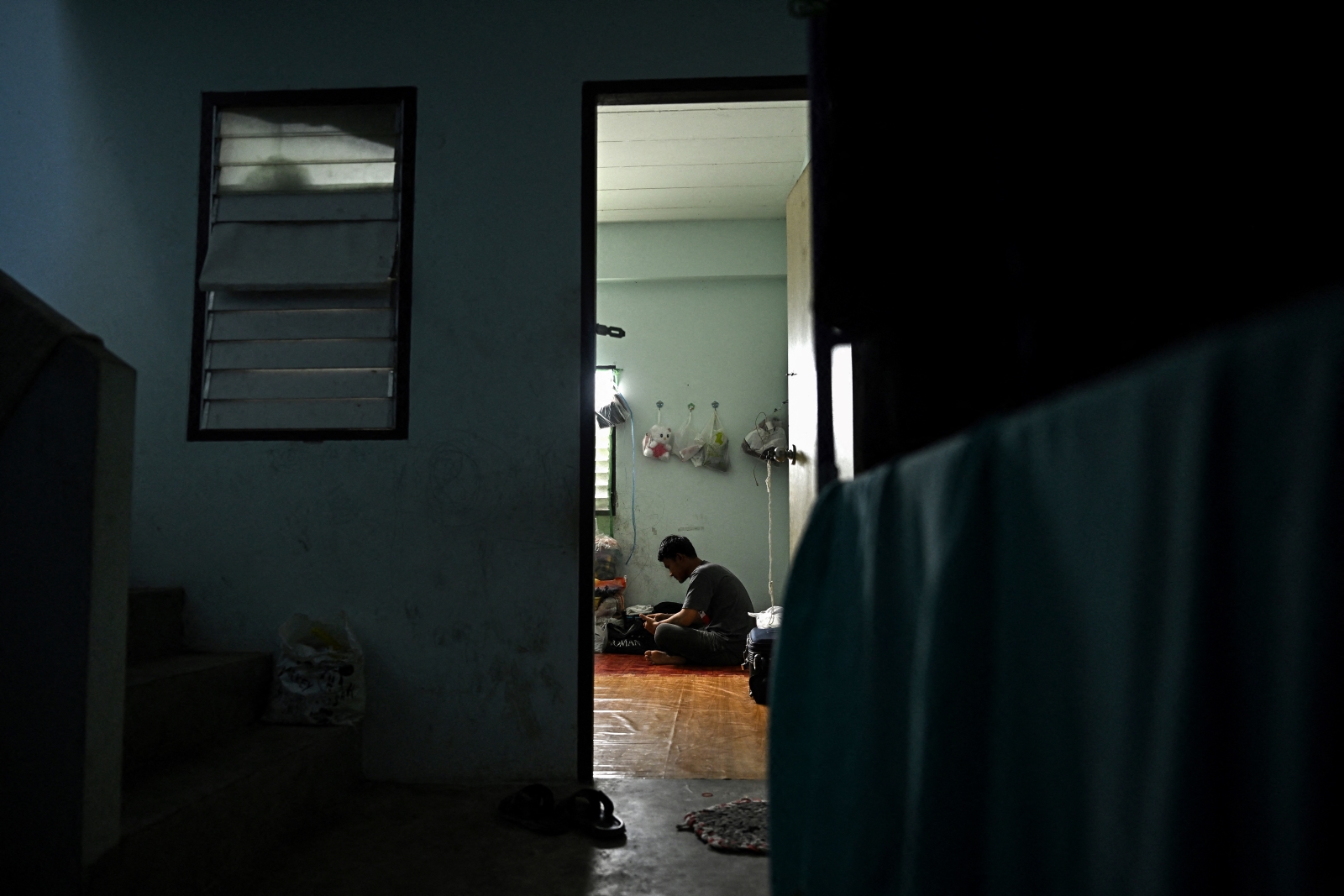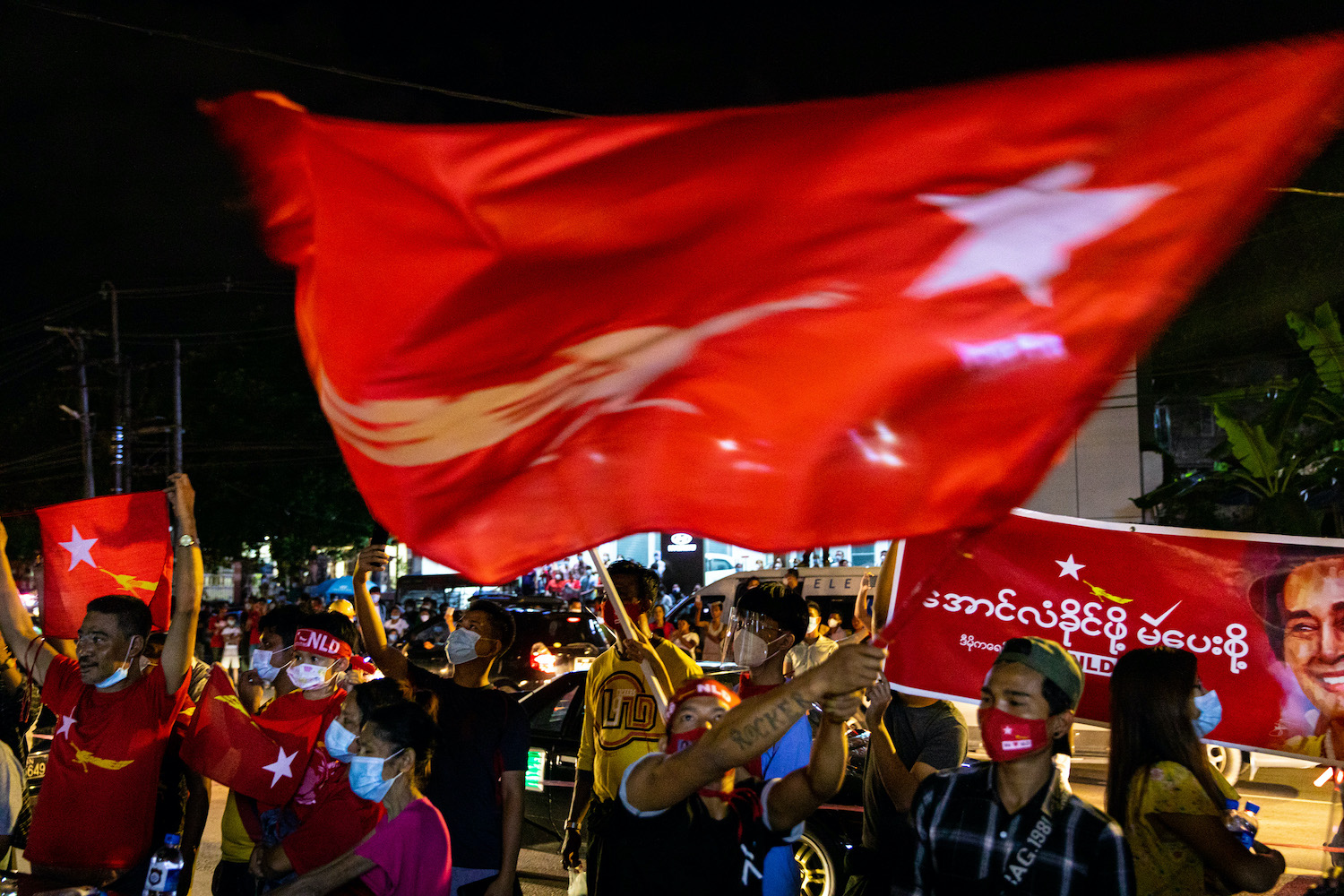As turmoil from the February 1 coup continues to wreak havoc on the economy, Frontier has again spoken to businesspeople in a range of sectors about the challenges they face in these uncertain times.
Increased costs, especially for imports, a shortage of cash, and transport and logistic problems are some of the biggest challenges confronting the business community more than five months into the coup. Uncertainty and instability continue to make it difficult for business owners to plan for the future.
Frontier has interviewed six people from a range of businesses about the difficulties they are facing and their predictions for the future. The interviews have been edited for length and clarity.
Ko Pauk
Owner of Global, an aluminium and glass interior design business in Yangon
The biggest challenge for my business is the rising cost of materials, especially glass. Last year a square foot of glass cost K850, but now it’s more than K2,000.
I don’t have any problems with banking. If a client wants to pay digitally, that’s fine, and if a materials supplier cannot be paid through electronic banking, I pay in cash.
The cost of the materials has risen, because supplies from overseas have stopped. It’s my biggest challenge, but as long as people keep constructing buildings, I will have work to do.
I don’t know what to expect in the future, and because there is no certainty about what it may bring, I think it’s better not to hope too much and just keep doing my work.
Ko Tar Tar
Owner of a mobile phone repair shop in Thingangyun, Yangon
At the moment, my business is barely surviving. In the past, if a customer wanted a phone repaired, I’d tell them what the problem was, how long it would take to fix and the cost. Now, because of higher costs, I often suggest to customers that it would be better if they continued to use their phone even though it is faulty. This is because repairs are more expensive and cash is in short supply.
I cannot accept electronic payments, but clients don’t want to pay in cash. I recently bought some software that I need for repairing mobile phones. The list price was K380,000, but when I asked if I could pay electronically, the software developer wanted K420,000. I had no choice but to pay electronically, because I want to conserve as much cash as I can.
Other materials are also becoming more expensive. I have had to discontinue a service I had provided for K35,000 because the materials required now cost more than K40,000, up from about K25,000 in the past. We need to carefully explain to customers how higher costs have resulted in higher repair fees.
We are also affected by fewer customers. Most people have decided to continue using faulty phones rather than repair them, or they sell them and buy a cheaper phone instead. That’s why there’s been rapid growth in the market for used phones.
Last year, I was planning to open another shop in 2021, but now I’m struggling to survive. I have to pay the monthly salaries of three employees as well as rent for the shop. I can keep going for the moment, but I’m not making a profit. I keep operating this business because I don’t want to leave the industry.
U Nay Myo Htet
Jewellery shop owner in Yangon and central executive committee member of Yangon Gold Entrepreneurs Association
In the current political and economic situation, the gold shop business is mainly focused on two activities: buying gold jewellery and selling bullion.
As the Burmese proverb says, “Gold is a decoration when you are prospering, and buys meals when you are not.” At a time like this, many people have lost their jobs and we have to buy back their jewellery. Even though there are almost zero sales of gold jewellery, we are buying it back every day.
At the same time, people who can afford it are buying pure, 24 carat gold to keep at home rather than holding cash. When you sell back pure gold you can be sure of covering the cost or even making a profit, and that’s why people who can afford it are buying pure gold rather than gold jewellery. People are investing in gold because they are worried about the possibility that the monetary or banking systems will collapse.
Daily operations have been affected by the situation. We have shorter opening hours and increased security. We also need extra security because we have to rely heavily on cash rather than electronic transactions because of disruptions at the banks.
Although our business is yet to be negatively affected, I would say that it’s slowing down. But it is still performing better than many other sectors of the economy.
I’m worried about the third wave of COVID-19. In the first and second waves, online trading worked well for us, but that’s no longer possible, officially, because Facebook and Instagram have been banned, and business will certainly slow down during the third wave.
In these uncertain times, none of us can expect anything. The main focus of our business and other businesses is just to keep operations running as usual.
U Ye Min Aung
Chair of the Myanmar Rice Federation and vice-chair of Union of Myanmar Federation of Chambers of Commerce and Industry
This is a challenging time for all sectors of the economy. The biggest challenge is banking and finance, because we have so many problems with transactions. Other challenges include security, transportation and logistics.
Production is down for this summer’s rice crop, and though we achieved good exports at the end of April, overseas sales in February and March were nothing special.
To meet domestic demands, rice mills continued operating. Even at the height of protests and crackdowns in February and March, when other businesses closed, the rice market stayed open throughout the country because of demand from the public.
The biggest challenge for exports is the rising cost of maritime transport and logistics. Transport and logistics costs for the European Union market have risen excessively. By excessively, I don’t mean 10 percent or 20pc; it’s jumped threefold or fourfold. We are suffering from the political situation more than other sectors because some shipping lines have decided not to come to Myanmar.
We had expected to export two million tonnes of rice this financial year, which ends at the end of September, but we can see that we won’t meet that target. So far, we have exported 1.4 million tonnes of rice and broken rice. If we compare numbers to the same period in the last financial year, exports are down by about 30pc.
There are not many changes in export demand. EU countries are still buying from us; it’s the transport and logistics costs that are the main challenge.
As for the farmers, they have been affected by higher prices for fertiliser, which are up by about 40pc on last year. If farmers cannot use enough fertiliser, it will affect yields.
Then there’s the millers. Their money is stuck in banks but when they buy from farmers they cannot pay them through digital transfers. Rice merchants have a similar problem.
If we consider the banking system, we can see it’s because the people have lost trust. Therefore, the regime will need to gain the people’s trust and participation.
I want the regime to be able to set good economic policies and plans quickly. They will need to start implementing them. Meanwhile, if everyone participates in the implementation, the economy will recover.
If that does not happen, the people of Myanmar will face more difficulties.
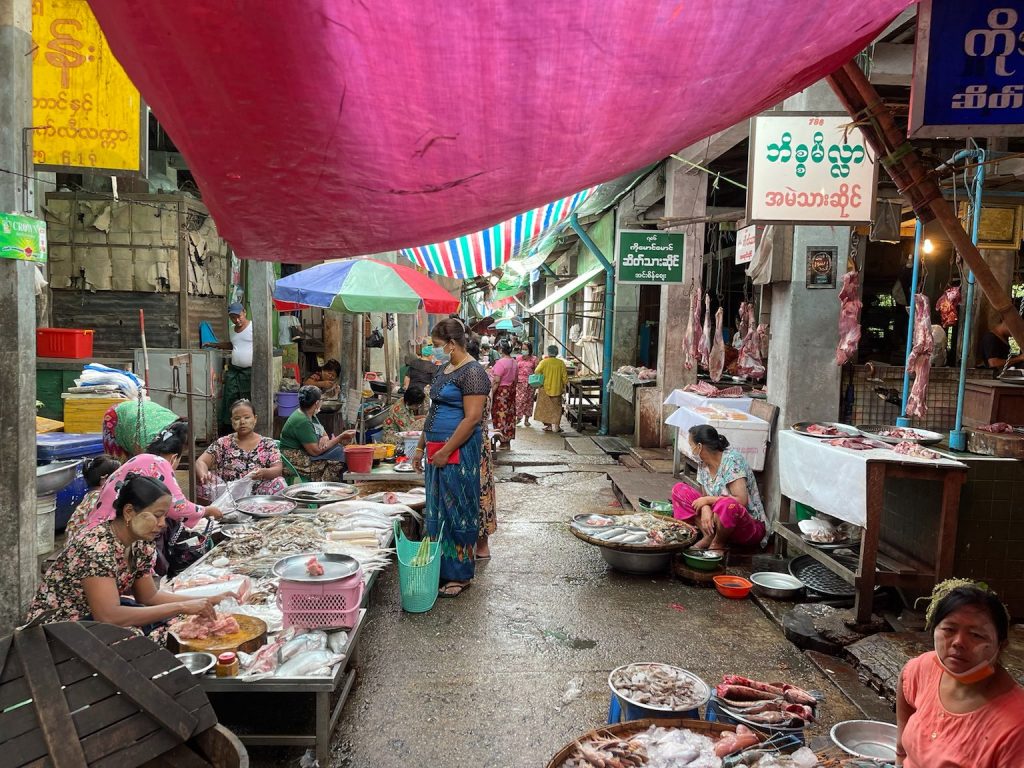
U Zaw Htike Aye
Chair of the Myanmar Automobile Manufacturers and Distributors Association
We are hardly prospering. Because customers can’t pay in cash, we have to accept payments through digital transfers. But when we buy vehicles from foreign countries, we have to pay in US dollars, and that’s a problem.
It is easy to sell with digital transfers, but it is hard for us to buy new stock with digital payment, whether it is new or used cars.
More brands are being imported, which has resulted in more competition, but even though there is an increase in supply, demand has not risen. It is difficult for dealers to survive.
The situation is completely different from last year, when sales recovered strongly after being flat at the start of the COVID-19 pandemic. There’s no prospect of a recovery this year. Sales are not even 50pc of what we achieved last year. Dealers are selling stock imported during the previous years but they can’t afford to import any more for many reasons, including the slowdown of trade and cash flow issues.
If commerce can recover and cash flow improves, I think we will overcome most of the difficulties, but if there’s no recovery, all businesses will be in trouble.
U Myint Soe
Chair of the Myanmar Garment Manufacturers Association
We have missed one of the two seasons our sector has each year. We start a new season in February, when we make clothes for winter, and in the winter, we produce clothes for the summer and rainy seasons.
However, after the situation in our country changed suddenly in February, winter season buyers changed their plans about placing orders here, because there were problems with ships being unable to dock in Myanmar’s ports.
Then the protests occurred in March in Hlaing Tharyar Township [the industrial outer Yangon township with many garment factories] and orders were cancelled and given to factories in Vietnam, Cambodia, China and elsewhere.
May, June and July are usually our busiest months, but we had no orders this year and that’s why some factories are closing temporarily and permanently.
In this situation, many tens of thousands of jobs have been lost. Our industry employed more than 500,000 people in the past, but we can only give jobs to about 350,000 people now, a decline of about 20pc.
I hope the situation improves in September and October, but in common with other sectors of the economy we face many challenges and an uncertain future.


